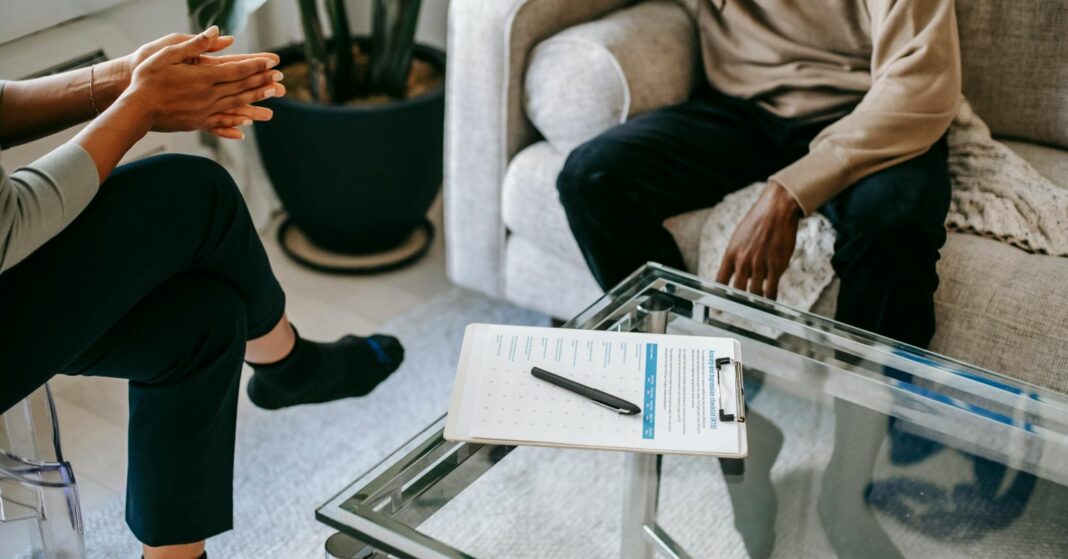The Therapy Pay Gap: Why Black Women Are Hit Hardest
As mental health awareness continues to grow, more and more people are seeking out therapy as a way to cope with stress, anxiety, and other mental health issues. However, a troubling trend has emerged – the therapy pay gap, with black women being hit the hardest.
What is the Therapy Pay Gap?
The therapy pay gap refers to the disparity in access to affordable mental health care services. Black women are disproportionately affected by this pay gap, as they often face higher barriers to accessing therapy due to factors such as systemic racism, economic disparities, and stigma surrounding mental health in their communities.
Why are Black Women Hit Hardest?
There are several reasons why black women are disproportionately affected by the therapy pay gap. One major factor is the lack of culturally competent mental health providers who understand the unique experiences and challenges faced by black women. This can lead to a lack of trust in the therapy process and a reluctance to seek help.
Additionally, many black women also face financial barriers that prevent them from accessing therapy. Studies have shown that black women are more likely to be living below the poverty line and may not have access to the same financial resources as their white counterparts. This can make it difficult for them to afford therapy sessions, even if they are able to find a provider who understands their cultural background.
Finally, the stigma surrounding mental health in the black community can also play a role in why black women are hit hardest by the therapy pay gap. Many black women may feel pressure to appear strong and resilient, and seeking help for mental health issues may be seen as a sign of weakness. This can prevent them from reaching out for the support they need.
How Can We Address the Therapy Pay Gap?
Addressing the therapy pay gap for black women will require a multi-faceted approach. One important step is increasing access to culturally competent mental health providers who understand the unique needs of black women. This can help build trust and make therapy more accessible and effective for this population.
Additionally, addressing the financial barriers to therapy is essential. This could involve expanding insurance coverage for mental health services, creating sliding scale payment options for those who cannot afford full price therapy sessions, and increasing funding for mental health programs that specifically target underserved communities.
Finally, reducing the stigma surrounding mental health in the black community is crucial. Education and outreach programs can help raise awareness about the importance of mental health and encourage more black women to seek help when needed. By normalizing the conversation around mental health, we can help reduce the barriers that prevent black women from accessing therapy.
Conclusion
The therapy pay gap is a significant issue that disproportionately affects black women, who often face multiple barriers to accessing mental health care services. By addressing the lack of culturally competent providers, financial barriers, and stigma surrounding mental health in the black community, we can work towards closing this gap and ensuring that all individuals have access to the support they need.
FAQs
What is the therapy pay gap?
The therapy pay gap refers to the disparity in access to affordable mental health care services, with certain populations facing higher barriers to accessing therapy due to factors such as systemic racism, economic disparities, and stigma surrounding mental health.
Why are black women hit hardest by the therapy pay gap?
Black women are disproportionately affected by the therapy pay gap due to factors such as a lack of culturally competent providers, financial barriers, and stigma surrounding mental health in the black community. These barriers can prevent black women from accessing the therapy they need.
How can we address the therapy pay gap?
We can address the therapy pay gap by increasing access to culturally competent providers, reducing financial barriers to therapy, and reducing the stigma surrounding mental health in underserved communities. By taking a multi-faceted approach, we can work towards closing this gap and ensuring that all individuals have access to the support they need.




